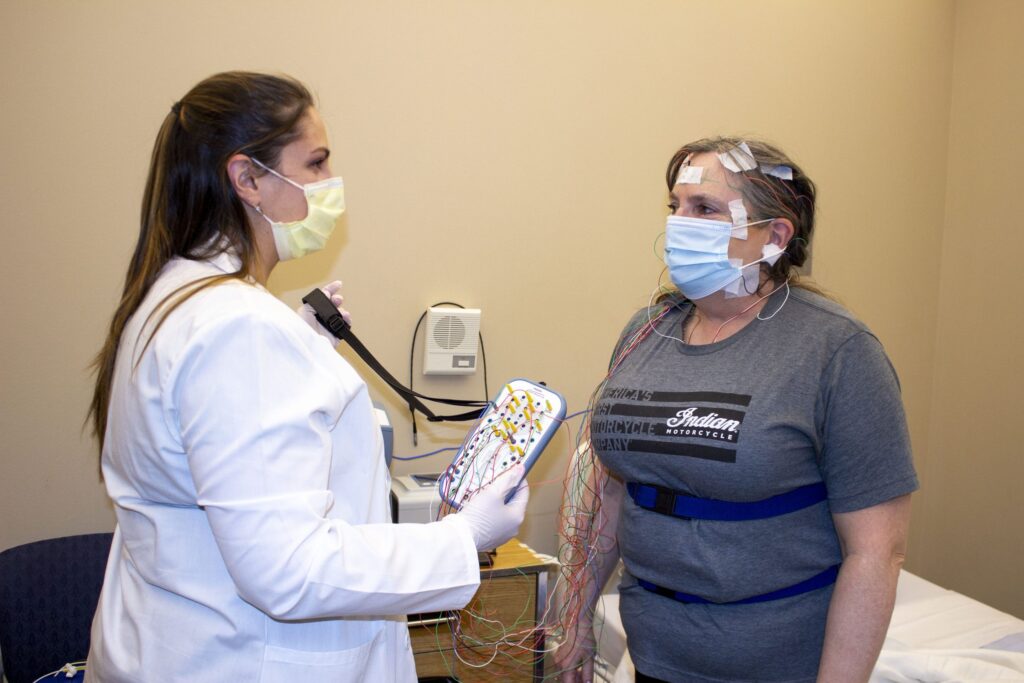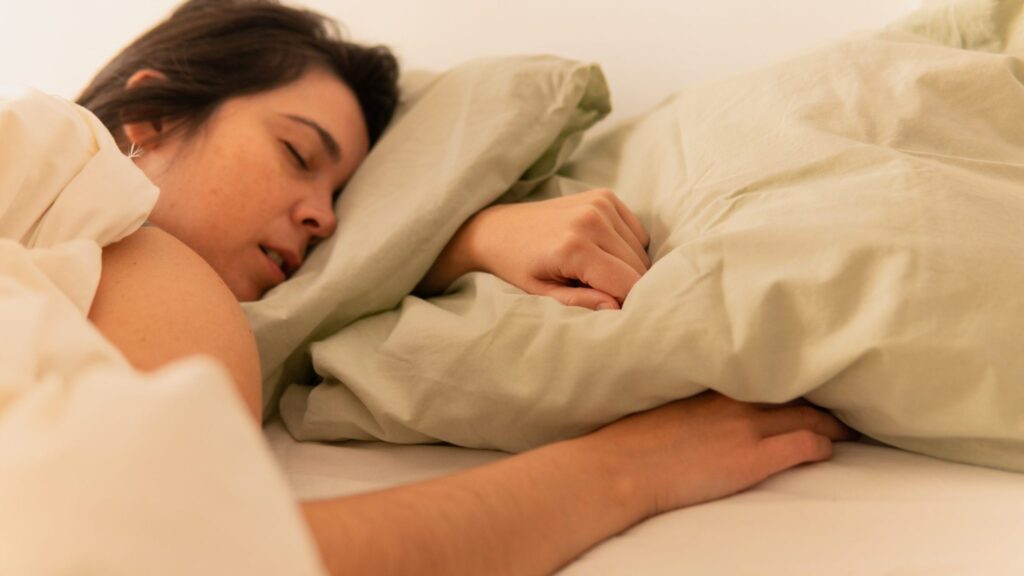Sleep is an essential component of overall health and well-being, yet many individuals struggle with sleep disorders that can significantly impact their quality of life. In Perth, there are numerous facilities that offer sleep testing, providing valuable insights into sleep patterns and potential issues. This article will guide you through the process of booking a sleep testing appointment in Perth, ensuring you have the necessary information to make an informed decision.
Understanding Sleep Disorders
Before diving into the booking process, it’s crucial to understand what sleep disorders are and how they can affect your health. Sleep disorders encompass a range of conditions that disrupt normal sleep patterns, including insomnia, sleep apnoea, restless legs syndrome, and narcolepsy. These disorders can have profound effects not only on your sleep but also on your physical and mental well-being, leading to issues such as decreased cognitive function, impaired memory, and a weakened immune system. The consequences of untreated sleep disorders can ripple through various aspects of life, affecting work performance, personal relationships, and overall quality of life.

Booking a sleep testing Perth is a straightforward process when you have the right information. By understanding sleep disorders, researching local facilities, and preparing adequately for your test, you can take significant steps towards improving your sleep quality and overall health.
Common Symptoms of Sleep Disorders
Identifying the symptoms of sleep disorders can be the first step towards seeking help. Common signs include:
- Excessive daytime sleepiness
- Difficulty falling or staying asleep
- Snoring or gasping during sleep
- Unexplained mood changes or irritability
If you experience any of these symptoms consistently, it may be time to consider a sleep test. Additionally, you might notice a decline in your ability to concentrate or an increase in anxiety levels, which can further exacerbate sleep issues. It is essential to listen to your body and recognise when these signs indicate a deeper problem that warrants professional attention.
Learn more on: Home Sleep Study Perth: Benefits and How to Book
The Importance of Sleep Testing
Sleep testing, or polysomnography, is a comprehensive evaluation that monitors various physiological parameters during sleep. This testing can help diagnose conditions such as obstructive sleep apnoea, which is linked to serious health issues like hypertension, heart disease, and diabetes. The process typically involves spending a night in a sleep clinic where various sensors are placed on your body to track brain activity, oxygen levels, heart rate, and breathing patterns. This detailed analysis provides invaluable insights into your sleep architecture and can reveal patterns that may not be apparent during a regular consultation.
By understanding your sleep patterns and any disruptions, healthcare professionals can tailor treatment plans to improve your sleep quality and overall health. Treatment options may range from lifestyle changes and cognitive behavioural therapy to the use of CPAP machines or medications, depending on the severity and nature of the disorder. Furthermore, the insights gained from sleep testing can empower individuals to take proactive steps towards better sleep hygiene, such as establishing a regular sleep schedule, creating a conducive sleep environment, and managing stress effectively, all of which contribute to a more restful night’s sleep.
Finding a Sleep Testing Facility in Perth
Once you recognise the need for a sleep test, the next step is to find a suitable facility in Perth. There are several options available, ranging from hospitals to specialised sleep clinics.
Researching Local Facilities
Start by conducting online research to identify sleep testing facilities in your area. Look for clinics that are accredited and have a good reputation. Websites like Healthdirect Australia can provide a list of sleep specialists and clinics.
Reading reviews and testimonials from previous patients can also give you insights into the quality of care and the overall experience at a particular facility. Additionally, consider asking for recommendations from your general practitioner or healthcare provider. It’s important to find a facility that not only meets your logistical needs but also aligns with your personal comfort levels, as this can significantly impact the testing experience.
Furthermore, many facilities offer initial consultations, which can be beneficial in assessing their approach to treatment and care. During these consultations, you can inquire about the qualifications of the staff, the technology used in testing, and the follow-up procedures after the test. This proactive approach can help ensure that you are making an informed decision regarding your sleep health. Find more about qualifications on https://rmur.edu.pk/medical-education/
Evaluating Services Offered
Not all sleep testing facilities offer the same services. Some may provide in-lab testing, while others might offer home sleep testing options. Understanding the differences can help you choose the right facility for your needs.
In-lab sleep studies typically involve spending the night at a clinic, where healthcare professionals can monitor your sleep closely. Home sleep tests, on the other hand, allow you to conduct the test in the comfort of your own home, using portable equipment. Discuss the pros and cons of each option with your healthcare provider to determine the best fit for you. It’s also worth noting that some facilities may offer additional services such as cognitive behavioural therapy for insomnia or educational resources about sleep hygiene, which can be invaluable in managing sleep disorders.
Moreover, the technology used in these tests can vary significantly. Some facilities utilise advanced polysomnography, which records brain waves, oxygen levels, heart rate, and breathing, while others might rely on simpler devices that measure just a few parameters. Understanding the capabilities of the equipment used can provide further insight into the accuracy and comprehensiveness of the testing process, helping you to make a more informed choice about where to undergo your sleep evaluation.
Booking Your Appointment
Once you have selected a facility, the next step is to book your appointment. This process can vary depending on the clinic, but generally follows a similar pattern.
Contacting the Facility
Most sleep testing facilities allow you to book appointments online, over the phone, or in person. When contacting the facility, be prepared to provide your personal information, including your name, contact details, and any relevant medical history.
It may also be beneficial to have your Medicare card or private health insurance details on hand, as this can facilitate the booking process and clarify any potential costs involved.
Consultation with a Sleep Specialist
Before undergoing a sleep test, you will likely need to have a consultation with a sleep specialist. This appointment is essential for discussing your symptoms, medical history, and any concerns you may have about the testing process.
The specialist will evaluate your situation and may recommend specific tests based on your symptoms. This is also an excellent opportunity to ask questions about the procedure, what to expect, and how the results will be communicated to you.
Preparing for Your Sleep Test
Preparation is key to ensuring an accurate and effective sleep test. The facility will provide specific instructions, but there are general guidelines that can help you get ready.
What to Expect on Testing Night
On the night of your sleep test, arrive at the facility with plenty of time to spare. You will be greeted by a technician who will explain the process and help you get settled. If you are undergoing an in-lab test, you will be connected to various monitoring devices that track your sleep patterns, heart rate, and breathing.
For home sleep tests, you will receive a device that you will need to set up according to the instructions provided. Make sure to follow the guidelines closely to ensure accurate results. To learn more about monitoring click here.
Tips for a Successful Sleep Test
To maximise the effectiveness of your sleep test, consider the following tips:
- Avoid caffeine and alcohol on the day of the test, as these can interfere with sleep.
- Stick to your regular bedtime routine to help your body prepare for sleep.
- Wear comfortable clothing and bring any items that may help you sleep, such as a favourite pillow.
Understanding Your Results
After your sleep test, the data collected will be analysed by a sleep specialist. This process may take some time, but it is crucial for obtaining accurate insights into your sleep patterns.

Receiving Your Diagnosis
Once the analysis is complete, you will have a follow-up appointment with your sleep specialist to discuss the results. They will explain any diagnoses made and the implications for your health.
Understanding your diagnosis is essential for taking the next steps, whether that involves lifestyle changes, further testing, or treatment options such as CPAP therapy for sleep apnoea.
Next Steps and Treatment Options
Depending on your diagnosis, your sleep specialist will recommend a treatment plan tailored to your needs. This may include:
- Behavioural therapies to improve sleep hygiene
- Medications to manage symptoms
- Continuous Positive Airway Pressure (CPAP) therapy for sleep apnoea
It is vital to follow through with the recommended treatment and attend any follow-up appointments to monitor your progress.
Conclusion
Remember, seeking help for sleep issues is a sign of strength, and the benefits of a good night’s sleep are immeasurable. With the right support and treatment, restful nights and rejuvenated days are within reach.

